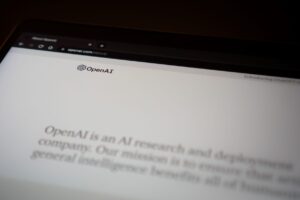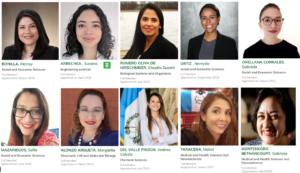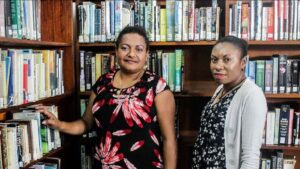Why opening up access to research findings in the global South will accelerate international development
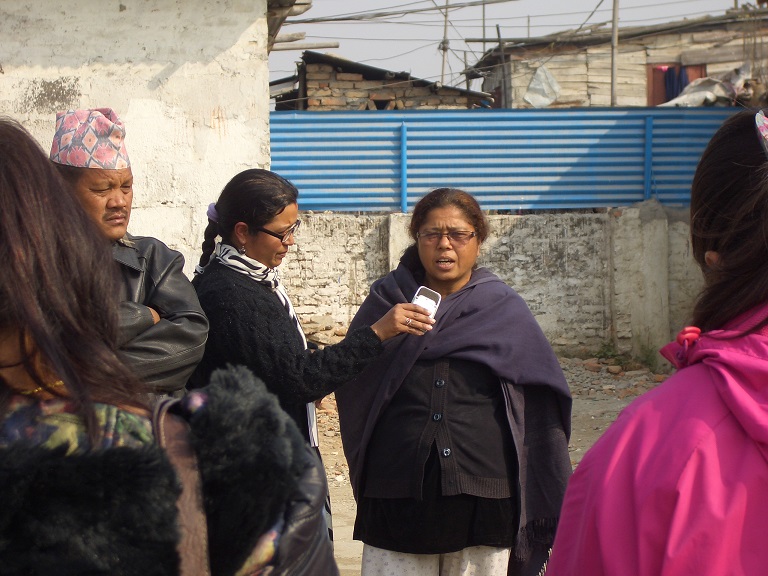
COMDIS-HSD supported HERD NGO workshops for
journalists in Nepal, focused on sensitizing them to urban healthcare issues.
Dr Nilam Ashra-McGrath works for COMDIS-HSD, which is a consortium of NGOs in Bangladesh, Nepal, Pakistan, Swaziland and the UK, and the University of Leeds, that does research on health service delivery interventions for a range of communicable and non-communicable diseases. In this post, she shares some of the challenges that the knowledge sector faces and reflects on the importance of access to research for NGO researchers.
Research findings should be as accessible as possible. To my mind, there’s no doubt that opening up and speeding up access to research will be a powerful force in meeting international development targets. Giving access to everyone – citizens, NGOs, students, activists, government staff, donors and philanthropists – has the potential to reduce the amount of duplication in research and increase the level of scrutiny as to how research is funded, interpreted and used by different parties. This enables citizens to hold multiple parties to account.
Challenges facing the knowledge sector in the global South
The research sector in the global South faces many challenges – and we have experienced a number of problems across our research consortium. These include: limited access to quantitative and qualitative research training for our NGO partners; political circumstances that slow the uptake of health research evidence into policy and practice; lack of drugs, medical staff and equipment that are necessary for completing health research and scaling up interventions; and the expense, time and bureaucracy involved in trying to access existing health research hidden behind paywalls.
Our NGO partners often have to find methods to access research that is readily available to universities. This is because researchers based outside of academic institutions do not have the same access to literature as those based within academic institutions. So anyone based in health centres, NGOs or media outlets has to go to the internet to find relevant literature to make sure they are not duplicating research that already exists, or to confirm facts. This can lead them to sites with non-peer-reviewed research or to paywalls for single articles (which they can’t afford). Our partners in Bangladesh, Nepal and Pakistan could benefit from greater awareness of INASP’s access initiative and Hinari (Research4Life) also helps, but there is still more content needed by our partner NGOs.
Because of this, many NGO partners have to ask collaborating researchers to help them locate journal articles. This is time consuming for all and in no way ideal if a large body of NGO-based researchers is to function and collaborate effectively.
Poor research access widens the gap between the North and South
Unfortunately, this lack of efficiency has important knock-on effects and raises broader questions. Take a recent example from my own work, where I was writing up the results of a media monitoring exercise in Nepal, and ended up searching for methodology-related articles and sending them to my co-author in Nepal for him to review and synthesize. Aside from being time consuming, this raises questions about the nature of collaborations between Northern institutions and Southern NGOs.
For example, it creates a dependency among Southern actors on Northern institutions to access relevant research data. Also, if Northern institutions are guiding the literature search and review process by selecting and sending articles to Southern partners, they inadvertently become gatekeepers of research articles. This decreases the exposure that Southern NGOs have to a larger body of research. It also limits their opportunity to explore the nuances and contextual issues of a particular project that perhaps only they would recognize when searching academic literature. Plus, it can slow down any capacity development of individuals based in the South to interpret and synthesize evidence.
Furthermore, access alone is not enough – research needs to be translated into many formats and languages to make it truly available. One vital step towards this is using everyday language to explain the potential consequences of any research once it has been published.
Connecting research access to the SDGs and national development
Southern NGOs are in a unique position. They are agile in the face of national disasters and political upheaval, they are politically savvy in how they instigate campaigns and empower citizens through advocacy, and they are highly resourceful.
If paywalls to research were removed, NGOs could more effectively access vital knowledge to support their advocacy and campaigning. They could build on any research they have conducted themselves and form stronger coalitions with multiple agencies for campaigning. All of this would have a hugely positive impact in the real world as it would equip nations to achieve the Sustainable Development Goals.
———————
Dr Nilam Ashra-McGrath is a Research Communications and Uptake Manager for COMDIS-HSD (based at University of Leeds, UK). She will be speaking at the Publishers for Development conference in Oxford on 11 July.

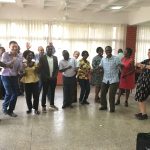 Previous Post
Previous Post